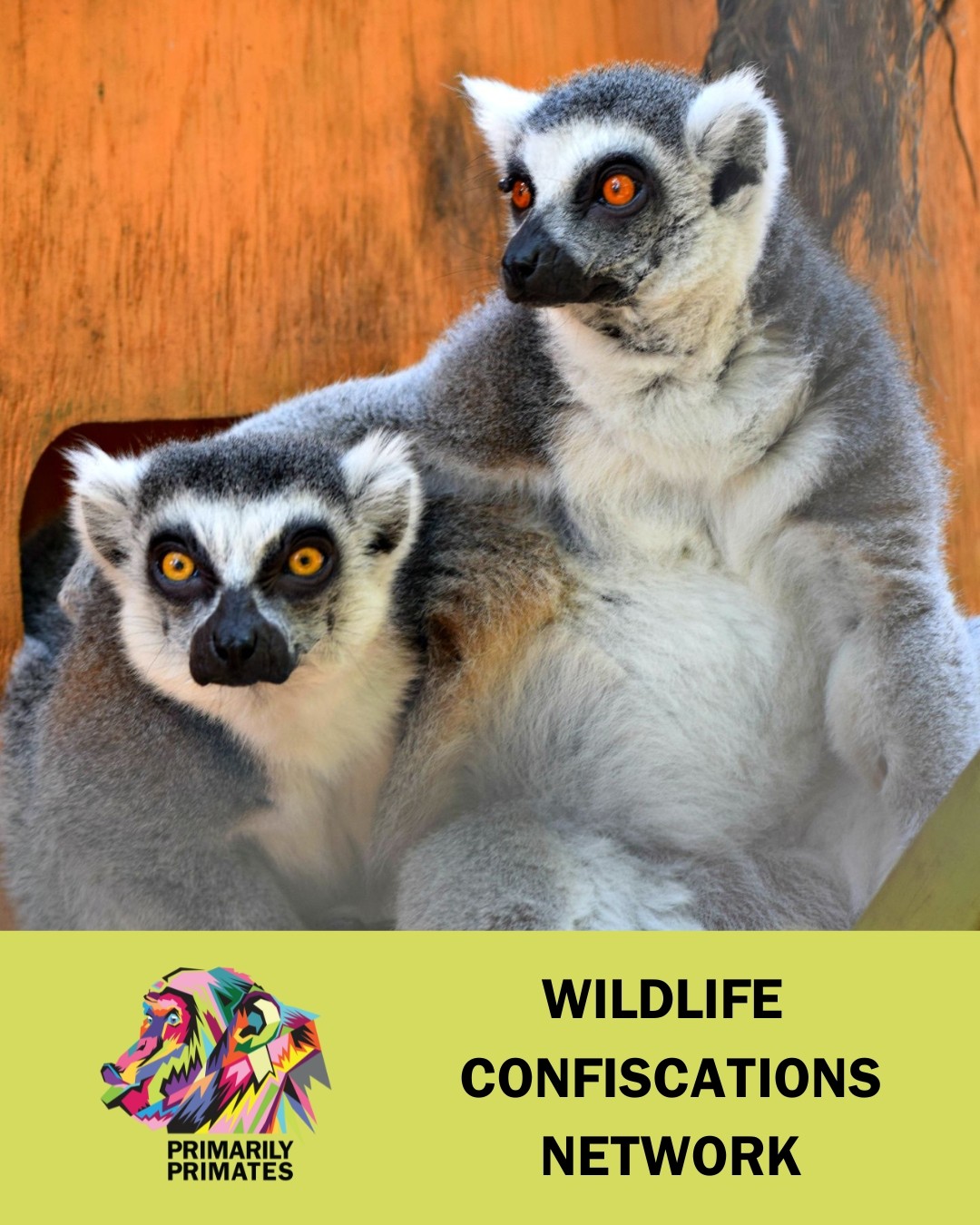Wildlife trafficking is a conservation crisis, with countless animals—including primates—being pushed toward extinction from the illegal trade in live animals as well as products made from their parts.
Primarily Primates is proud to be part of the solution—while we’ve been rescuing primates from the illegal pet trade, biomedical research and entertainment for decades, we were recently chosen to be part of the Wildlife Confiscations Network. It’s a first-of-its-kind nationwide pilot program that strives to reduce wildlife trafficking and increases support for law enforcement by providing a coordinated system to ensure the care and welfare of confiscated live wildlife.
Last month we rescued Felix, a baby spider monkey found running loose through a San Antonio, Texas, neighborhood, where it’s illegal to have spider monkeys as pets. We learned from a U.S. Fish and Wildlife officer that 90% of spider monkeys confiscated in Texas were wild caught and smuggled over the border. That means Felix was likely living happily in the wild somewhere until a poacher came in and killed his entire troop to steal him.
“What happened to Felix and his family is a supreme injustice,” said Krystal Mathis, executive director of Primarily Primates. “We are happy to be involved in righting the wrong. We can provide baby Felix a place to live where he can experience life with others of his own kind and be respected for the individual he is. Sadly, there are many smuggled ‘border babies’ like Felix in the US right now who can never go back to the wild.”
She said the Wildlife Confiscations Network is helping PPI find age-appropriate spider monkey companionship for Felix.
“Thanks to the work of many individuals and government agencies dedicated to ending wildlife trafficking, there is hope and a better future for these beautiful monkeys after their traumatic beginnings,” Mathis said.
Wildlife trafficking is one of the largest illegal trades, after crimes such as drug and human trafficking, and is estimated to be worth between $7-23 billion per year. Often the same criminals that engage in wildlife trafficking also engage in drug and human trafficking as well as weapons smuggling.
As FWS continues to battle the illegal primate trade, PPI’s participation in the Wildlife Confiscations Network will be crucial for the care and wellbeing of the animals confiscated. The number of confiscations is staggering. From 2015-2019, FWS had 834 cases of live wildlife that were refused clearance and seized or abandoned, which included 48,793 individual live animals that required care and placement. This number averages to 14 new cases per month and 27 individual live specimens per day.
Please consider donating to our lifesaving work at primarilyprimates.org.

